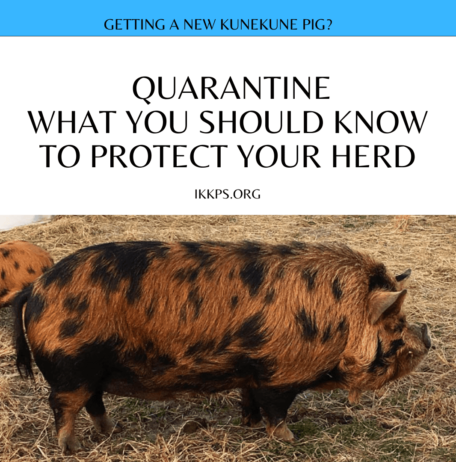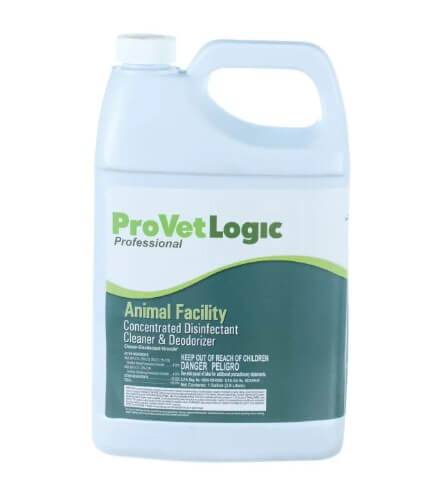
Sign Up
Want to receive a newsletter to learn more about KuneKune pigs and other educational information? Sign up to have them delivered right to your inbox.
We look forwarded to sending you some great info.

Getting a New KuneKune?
The Importance of Quarantining KuneKunes New to Your Farm
If you are getting a new KuneKune for your farm, you will want to know about quarantining KuneKunes. Why Quarantine? In this post, we will cover why it is important to quarantine to protect your KuneKune herd.
In this article we will cover the importance of quarantining new KuneKune pigs for your farm, why that is important to quarantine, and how it helps protect your KuneKune Herd. By providing a separate space for them to adjust, you are giving them time to adapt to their new surroundings and reduce the risk of illness. This period also allows you to gradually introduce them to the existing herd.
Why you should quarantine new pigs to protect your herd.
Quarantining new pigs before introducing them to your farm is a crucial step in ensuring the health and well-being of your existing herd. This practice not only helps to prevent the spread of diseases but also allows you to closely monitor the new arrivals for any signs of illness. By implementing a quarantine period, you are taking
proactive measures to protect your investment and maintain the overall health of your farm.
How Quarantining KuneKunes help the new arrival pig.
Moving to a new farm can be stressful for pigs, and stress can weaken their immune system, making them more susceptible to diseases. Even being exposed to other animals during transportation can be stressful for the pigs and gives another great reason that quarantines are important. They have been exposed to many other animals during transport.
During the quarantine period, you are giving this pig time to settle into its unfamiliar environment and time for you to spend getting to know your new KuneKune pig. Utilize this time of separation to spend time with your new pig, and get to know its temperament and personality. This is a wonderful time to get the new addition used to your feeding program as well.
How to Quarantine.
When quarantining new pigs are kept separate from the rest of the herd. The pigs should not be able to touch snout to snout with any other pigs in your herd. This isolation allows you to closely observe their behavior and monitor their health. It is important to note that some diseases may not show immediate symptoms, and pigs can be carriers without showing any signs of illness. By quarantining new pigs, you can identify any potential health issues before they have the chance to spread
to the rest of your herd.
Make sure to have clean and disinfected water dishes and food bowls. You will need appropriate shelter, fencing, and a mud puddle in the area that you are choosing to do the quarantine.
Daily Inspections of the quarantining KuneKune.
Daily inspections are important to watch for any signs of illness or disease. Watch to ensure they are eating and drinking well. Make sure their skin looks healthy as well as their coat. You are checking for bald spots, flaky skin, and any markings on the skin that appear raised and/or diamond-shaped. Keep an eye on their poop for any signs of worms. It is also a wonderful time to get any needed vaccinations and deworming completed. Make sure their eyes are clear and no signs of coughing or discharge from the snout are present.
Biosecurity
Additionally, quarantining new pigs provides an opportunity for you to implement biosecurity measures. This includes thoroughly cleaning and disinfecting the quarantine area to minimize the risk of disease transmission. It is also important to practice good hygiene, such as washing hands and changing clothes before and after handling the quarantined pigs. These measures help to prevent the introduction of pathogens to your farm and protect the health of your existing herd.
Pigs are highly susceptible to various diseases, making biosecurity measures crucial in maintaining their health and preventing the spread of infections. Biosecurity refers to a set of practices and protocols aimed at minimizing the risk of disease transmission within and between pig populations. By implementing effective biosecurity measures, pig farmers can protect their animals, reduce economic losses, and contribute to the overall health of the swine industry.
Controlling Access
The primary biosecurity measure for pig farms is controlling access to the premises. Restricting entry to authorized personnel only helps prevent the introduction of pathogens from outside sources. Visitors should be required to follow strict hygiene protocols, such as wearing protective clothing, disinfecting footwear, and
washing hands thoroughly before entering the farm. Additionally, vehicles and equipment entering the premises should be thoroughly cleaned and disinfected to
minimize the risk of disease transmission.
Sanitation
Proper sanitation and hygiene practices are crucial in preventing the spread of diseases within pig populations. Regular cleaning and disinfection of pig housing facilities, equipment, and vehicles help eliminate pathogens and reduce the risk of infection. All personnel should be trained in proper hygiene practices, including handwashing, wearing protective clothing, and using disinfectants effectively. Additionally, strict protocols should be in place for the disposal of manure and other waste materials to prevent environmental contamination and the spread of diseases.

Chlorhexidine Solutions

ProVetLogic Disinfectant
Implementing effective biosecurity measures is essential for maintaining the health and well-being of pigs. Controlling access to the premises, separating different pig populations, regular monitoring, and surveillance, and practicing proper sanitation and hygiene are all key components of a comprehensive biosecurity program. By prioritizing biosecurity, pig farmers can protect their animals from diseases, minimize economic losses, and contribute to the overall sustainability of the swine industry.
Quarantine Period
It is advisable to quarantine for a period of 30 days. This is the norm for quarantining KuneKunes. You can do more if you suspect anything may be "off" with your new KuneKune pig.
In Conclusion
Quarantining new pigs before introducing them to your farm is a necessary step in maintaining the health and well-being of your herd. By closely monitoring their health, implementing biosecurity measures, and allowing them to acclimate to their unfamiliar environment, you are taking proactive measures to prevent the spread of diseases and protect your investment. The quarantine period provides an opportunity to identify any potential health issues and minimize the risk of illness within your farm. Therefore, it is essential to prioritize the quarantine process when bringing new pigs onto your farm.
Additional Resources:
Registry Office
17500 Hamilton Arms Court Dewitt, VA 23840